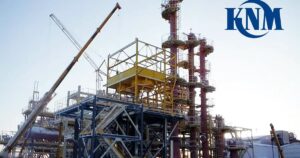
Bank Negara Malaysia (BNM) governor Abdul Rasheed Ghaffour is optimistic that Malaysia’s economy remains on a strong growth trajectory despite headwinds from impending tariffs.
Rasheed said that among the combination of positive factors supporting the economy are its resilient domestic demand and encouraging exports of electrical and electronic products (E&E).
He also highlighted the frontloading of exports in the first six months, robust tourism activity that could raise Malaysia’s export prospects, low unemployment, and rising wages.
While uncertainties remain, particularly surrounding the final scale and rate of the US tariffs, BNM’s revised growth forecast of 4% to 4.8% for the year has taken into account multiple scenarios, including potential trade disruptions.
“We have accounted for a range of tariff scenarios, including both favourable and unfavourable trade negotiation outcomes as well as pro-growth policies in major economies.
“A diversified export structure will help contain the direct effect from the US, as around 85% of our exports are to non-US markets, and no single market accounts for more than 15% of Malaysia’s exports,” he told Bernama.
Rasheed noted that Malaysia’s exports are spread across a wide range of products, consisting of E&E (40%), non-E&E manufacturing goods (46%) and commodities (14%).
He said almost half of the demand for Malaysian exports comes from Advanced Asia (19.4%) and Asean countries (29%).
Rasheed said domestic demand drives more than 90% of Malaysia’s economic growth.
“Consumption is still resilient despite the tariff announcement because income is still growing and wages are still on an increasing trend.
“People have jobs. These are things that will support consumption,” he said, adding that the government’s ongoing policy support measures remain in place and support the growth.
On July 23, Prime Minister Anwar Ibrahim announced a cost-of-living relief package which includes a one-off RM100 cash aid, a reduction in the RON95 fuel price, toll hike postponements, and an expanded Rahmah Madani Sales allocation.
Rasheed said this will also drive domestic consumption.
He said Malaysia recorded RM378 billion in approved investments last year, with over half coming from domestic sources.
These are tied to long-term national development plans and are expected to sustain momentum through this year and into 2026.
In terms of exports, which are likely to be moderate in the second half of the year as tariffs take effect and global growth slows, BNM expects E&E exports to continue supporting growth.
This is underpinned by resilient demand for E&E and emerging opportunities in the artificial intelligence-related segment.
Rasheed also said inbound tourism is expected to provide support for exports in the second half of the year driven by higher flight connectivity, visa exemptions, and promotional activities leading to Visit Malaysia 2026.
He said there were 16.9 million international visitor arrivals into Malaysia from January to May, which is 20% higher than the same period in 2024.






